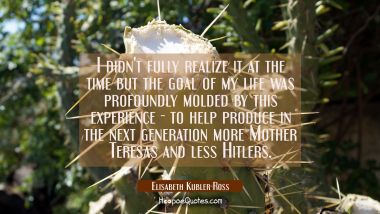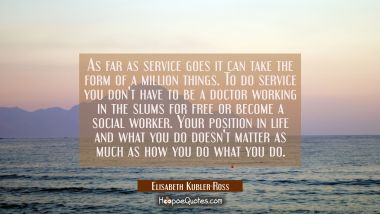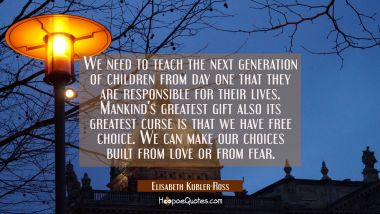
Elisabeth Kubler-Ross
Elisabeth Kübler-Ross (July 8, 1926 – August 24, 2004) was a Swiss-American psychiatrist, a pioneer in near-death studies and the author of the groundbreaking book On Death and Dying (1969), where she first discussed her theory of the five stages of grief.
Enjoy the best Elisabeth Kubler-Ross picture quotes.
Read more about Elisabeth Kubler-Ross on Wikipedia.























